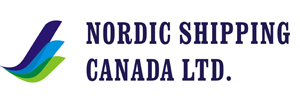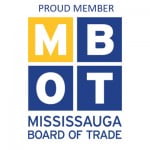1. Two new Incoterms rules – DAT and DAP – have replaced the Incoterms 2000 rules DAF, DES, DEQ and DDU The number of Incoterms® rules has been reduced from 13 to 11. This has been achieved by substituting two new rules that may be used irrespective of the agreed mode of transport – DAT, Delivered at Terminal, and DAP, Delivered at Place – for the Incoterms® 2000 rules DAF, DES, DEQ and DDU. Under both new rules, delivery occurs at a named destination: in DAT, at the buyer’s disposal unloaded from the arriving vehicle (as under the former DEQ rule); in DAP, likewise at the buyer’s disposal, but ready for unloading (as under the former DAF, DES and DDU rules).
The new rules make the Incoterms® 2000 rules DES and DEQ superfluous. The named terminal in DAT may well be in a port, and DAT can therefore safely be used in cases where the Incoterms® 2000 rule DEQ once was. Likewise, the arriving “vehicle” under DAP may well be a ship and the named place of destination may well be a port: consequently, DAP can safely be used in cases where the Incoterms® 2000 rule DES once was. These new rules, like their predecessors, are “delivered”, with the seller bearing all the costs (other than those related to import clearance, where applicable) and risks involved in bringing the goods to the named place of destination.
2. Classification of the 11 Incoterms® 2010 rules The 11 Incoterms® 2010 rules are presented in two distinct classes:
Among the best known Incoterms are EXW (Ex works), FOB (Free on Board), CIF (Cost, Insurance and Freight), DDU (Delivered Duty Unpaid), and CPT (Carriage Paid To).
The 2000 edition takes account of the increased use of intermodal transport by providing for the delivery of goods from seller to buyer at any point in the transport chain instead of concentrating as in the past on the moment the goods cross the ship’s rail. The term FCA (Free Carrier) gives a clear definition of the seller’s delivery obligation in the country of export, irrespective of the mode of transport.
GROUP ‘C’
Under the “C” group, the seller is required to contract for carriage on usual terms at his own expense. Therefor, a point up to which he would have to pay transport costs must necessarily be indicated. Seller is also responsible for export customs clearance formalities.
CFR – Cost and Freight: Title, risk and insurance cost pass to buyer when delivered on board the ship by seller who pays the transportation cost to the destination port. Used for sea or inland waterway transportation.
CIF – Cost, Insurance and Freight: Title and risk pass to buyer when delivered on board the ship by seller who pays transportation and insurance cost to destination port. Used for sea or inland waterway transportation.
GROUP ‘D’
Under the “D” group, the seller is responsible for the arrival of the goods at the agreed place or point of destination at the border or within the country of import. The seller must bear all risks and costs in bringing the goods thereto.
DDU – Delivered Duty Unpaid: Title, risk and responsibility of import clearance pass to buyer when seller delivers goods to named destination point. Used for any mode of transportation. Buyer is obligated for import clearance.
DES – Delivered Ex Ship: Title, risk, responsibility for vessel discharge and import clearance pass to buyer when seller delivers goods on board the ship to destination port. Used for sea or inland waterway transportation.
Note: EXW, CPT, CIP, DAF, DDU and DDP are commonly used for any mode of transportation. FAS, FOB, CFR, CIF, DES, and DEQ are used for sea and inland waterway.
GROUP ‘E’
Under group ” E ” the seller delivers when he or she places the goods at the disposal of the buyer at the seller’s premises or another named place such as factory, warehouse etc…If your cargo required special type of loading and handling such as crane or heavy equipment rental, bracing and blocking or special support such as air bags to prevent damage during transportation, the seller can require the buyer to pay for the additional costs.
GROUP ‘F’
Under Group ” F ” the seller is required to delivered the goods for carriage as instructed by the buyer. All export clearance charges are for the account of the seller.
FCA – Free Carrier: Title and risk pass to buyer including transportation and insurance cost when the seller delivers goods cleared for export to the carrier. Seller is obligated to load the goods on the Buyer's collecting vehicle; it is the Buyer's obligation to receive the Seller's arriving vehicle unloaded.



